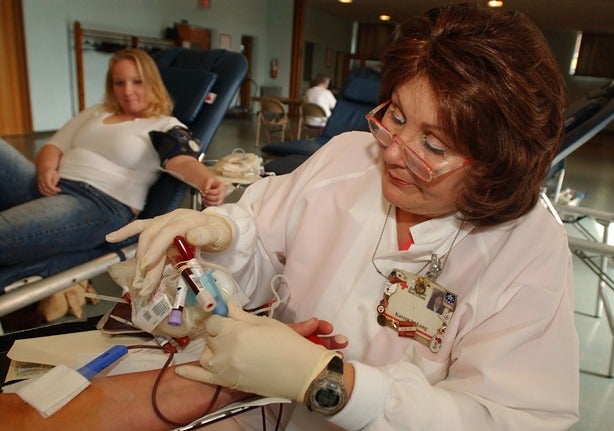Uncategorized
Union Coalition Achieves Unity

After several months of negotiations and a month-long balloting process, Teamster members, as part of a multi-union coalition, ratified a new contract at American Red Cross. The agreement will impact more than 1,300 Teamsters at 18 different local unions across the United States.
Karine Roberts, one of the more than 700 proud Teamster women at Red Cross, works as a phlebotomist and is a member of Local 223 in Portland, Oregon. “I’ve been involved with negotiating our last five local contracts. We’ve never had a national agreement and I think this is fabulous. The negotiators covered a lot of the big stuff.”
Teamsters have represented American Red Cross workers for decades, mostly in the mobile blood collection units that service communities in major metropolitan areas across the U.S. Often it’s a Teamster member assisting you at your local blood drive, whether it’s in the Philadelphia, Boston, Los Angeles, Portland or Cleveland areas.
“We represent one of the larger Red Cross units since our members have to cover 19 different counties in Ohio,” said Safeyyah Edwards, a shop steward at Red Cross and a Trustee of Local 507 in Cleveland which represents more than 160 blood collection workers, nurses, medical assistants and emergency medical technicians (EMTs). “Our members are dedicated. They believe in the work they do and serving the community at large. I like to say that we, frontline staff, are the backbone of the American Red Cross. Its success does not come without us.”
Edwards, along with representatives from local unions from Boston to Atlanta to Detroit to Los Angeles and many points in between, spent countless hours working on the negotiation process with the other members of the union coalition bargaining team. “I am hopeful that the National Addendum will help resolve some outstanding workplace concerns at the local union level,” Edwards said.
“Now that this first-ever national agreement has been ratified, Red Cross will be in a better position to improve its operations and overall financial condition, while organized labor will enhance its ability to effectively address concerns,” said Michael Filler, Director of the Public Services Division.